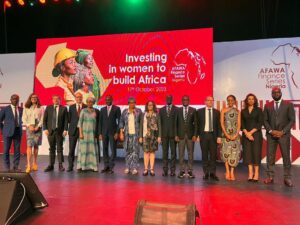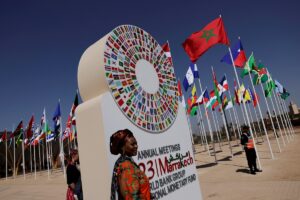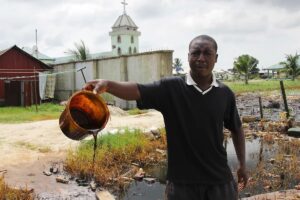- d.light’s 600,000 cookstoves project verified as top source of quality carbon credits
- Artificial intelligence (AI) could create a turning point for financial inclusion in Africa
- AIM Congress 2024: Catalysing global investments with awards
- Kenya’s economic resurgence in 2024
- The most stressful cities to live in 2024 exposed
- Tech ventures can now apply for the Africa Tech Summit London Investment Showcase
- State of journalism survey 2024 shows media houses are lagging in AI adoption
- Forum sets the stage to unleash global potential for startups during AIM Congress 2024
Banking
- Remittance inflows for March grew to $407.8 million, up from $385.9 million in February, with the US maintaining its lead as the top source for Kenya’s remittances.
- This was also higher by 14.2 percent compared to the $357.0 million sent in the same month last year (March 2023), according to official data by the Central Bank of Kenya (CBK).
- The cumulative inflows for the 12 months to March 2024 totaled $4.4 billion compared to USD 4 billion in a similar period in 2023, an increase of 10 percent.
Kenyans living and working abroad sent home more money in March, boosting the country’s forex reserves and supporting families and friends.
Remittance inflows for March grew to $407.8 million, up from $385.9 million in February, with the US maintaining its lead as the top source for Kenya’s remittances.
This was also higher by 14.2 per cent compared to the $357.0 million sent …
- Zimbabwe is phasing out ZWL as it ushers a new gold-backed currency, ZiG, starting today, Monday, 8 April 2024.
- The ZiG is anchored by 2.5 tonnes of gold in the central bank’s vault and a basket of foreign currencies held as reserves.
- Zimbabwe’s new Central Bank Governor has announced sweeping reforms as the new currency enters everyday use.
Zimbabwe launched a new currency on Friday, 5 April 2024, called the Zimbabwe Gold or the ZiG. The launch of the new currency occurred during the announcement of the country’s latest Monetary Policy Statement (MPS) in an event presided over by newly appointed central bank governor John Mushayavanhu.
The MPS introduced measures and interventions to anchor the local currency and ensure exchange rate and price stability. The old currency, the ZWL, had depreciated to its lowest against the US dollar, roughly ZWL 32,000. It lost over 90 per cent of its …
- The Central Bank of Nigeria has decided to increase the minimum capital requirement for lenders to bolster the country’s economy.
- Nigerian banks now face weaker capital ratios and higher impaired loans.
- The last time Nigeria recapitalised its banking sector dates back to 2004.
Minimum capital requirement for lenders
Following the surge in inflation levels, a deteriorating economy, and the plummeting of the Naira, the CBN has decided to increase the minimum capital requirement for lenders to bolster the country’s economy.
asu football jersey
detroit lions jersey
asu football jersey
Florida state seminars jerseys
custom made football jerseys
asu football jersey
College Football Jerseys
Florida state seminars jerseys
asu football jersey
Iowa State Football Uniforms
asu football jersey
Iowa State Football Uniforms
ohio state jersey
asu football jersey
Under the new regulations, the Central Bank of Nigeria has raised the capital threshold for international banks to $359 million …
In the ever-evolving world of global finance, oil-rich Saudi Arabia is emerging as a pivotal thread, weaving a narrative of economic collaboration and strategic partnerships. As the Saudi Fund for Development (SFD) unfurls its wings, it has inked a historic $580 million loan agreement with 12 African countries, marking a significant stride in the kingdom’s expanding role on the world financial stage.
Against the backdrop of evolving dynamics, where traditional financiers, especially China, are reassessing their commitments, Saudi Arabia’s ascent becomes a compelling tale of financial diplomacy, poised to reshape the contours of international economic relations. Saudi Arabia is positioning itself not just as a regional powerhouse but as a global player influencing the trajectory of world finance.…
- TransUnion survey shows four in 10 (41%) of Kenyan consumers reported a decrease in income over the past three months.
- A similar number or 42% of Kenyan consumers anticipate being unable to pay their current bills and loans in full.
- About 55% of Kenyan consumers plan to make further cuts to their discretionary spending. What’s more, 47% expect a decrease in large purchases such as cars.
A new survey by TransUnion has revealed a mixed financial outlook for Kenyan consumers in the second quarter of 2023. The research, presented at its annual Financial Services summit in Nairobi, found that while eight in 10 (79 per cent) expect their household incomes to increase in the coming year, four in 10 (41 per cent) reported a decrease in income over the past three months. A similar number or 42 per cent anticipate being unable to pay their current bills and loans in …
- The AfDB and the African Guarantee Fund have unveiled a fresh plan to enhance the financial inclusion of women in Nigeria’s economy.
- The duo have opened the AFAWA Finance Series Nigeria, part of the AfDB’s Affirmative Finance Action for Women in Africa (AFAWA) initiative.
- AFAWA Finance Series Nigeria will explore ways of enhancing the regulatory frameworks that can boost access to finance for women entrepreneurs.
Africa has the highest number of female entrepreneurs across the globe. However, the biggest obstacle they encounter is limited access to finance. Although access to financing poses a challenge to all small and medium enterprises, women-owned businesses are notably at a disadvantage.
It is estimated that the financial gap facing women entrepreneurs may reach up to $50 billion. This can be attributed to several factors, including deep-rooted social and cultural norms. These norms have historically restricted women’s ownership rights of assets that could serve as …
Climate finance by Multilateral Development Banks (MDBs) for low-income and middle-income economies hit a new record of $60.7 billion in 2022. The amount was 46 per cent higher than the 2019 levels, a new joint report by the lenders shows.
In terms of usage, $38.0 billion, or 63 per cent, went into projects helping mitigate the rising threat of climate change. Another $22.7 billion, or 37 per cent, went into supporting climate change adaptation initiatives. Overall, the portfolio of private finance mobilised in the period stood at $16.9 billion, the report said.…
The International Monetary Fund (IMF) has thrown its weight behind a call by the African Development Bank (AfDB) Group urging African nations to stop borrowing loans primarily secured by their natural resources.
IMF Managing Director Kristalina Georgieva met with Dr. Akinwumi Adesina, the President of the AfDB Group, in Abidjan, Cote D’Ivoire. This meeting marked the first time an IMF head visited the Bank headquarters since its establishment in 1964.…
The loan market in Kenya’s banking sector is going through one of its toughest periods in nearly two decades. With interest rates on the rise and a challenging economic environment, many borrowers—individuals and businesses—are finding it hard to meet their loan obligations.
According to the most recent data from the Central Bank of Kenya (CBK), the proportion of loans that are not being repaid, known as non-performing loans (NPLs), reached 15.0 percent in August 2023, up from 14.2 percent in August 2022. This represents more than $4 billion (Ksh596 billion), the highest it has been in 18 years. The last time Kenya experienced such a high level of loan defaults was back in 2005, when it reached nearly 30 percent.…


























